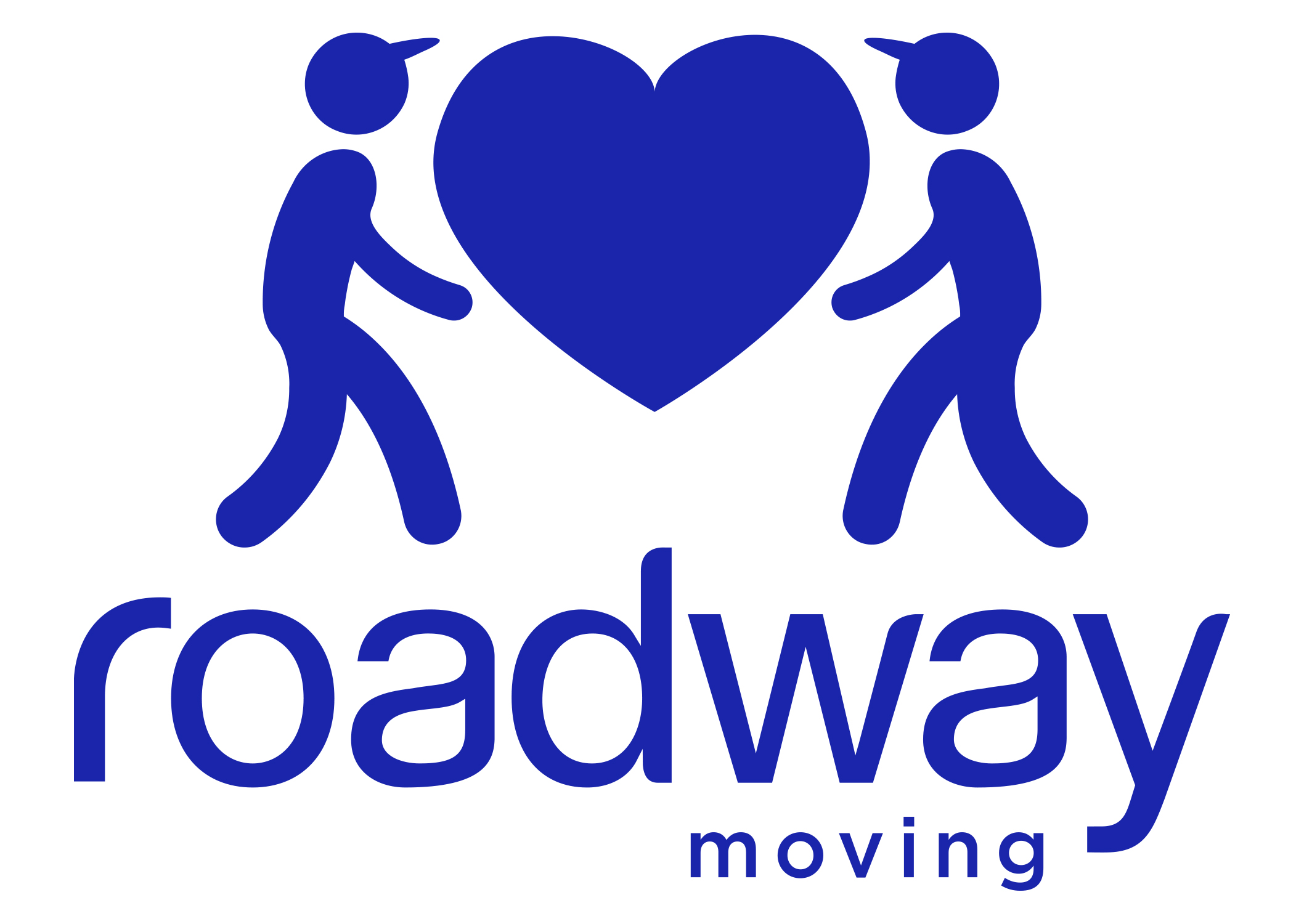Local moving companies in North Carolina
Moving from North Carolina to Chicago, IL calls for the support of experienced and reliable movers who can handle relocations with ease.
Out of 92 North Carolina movers that handle state-to-state moves, here are the top 5 that can handle your move to Chicago, IL.
- Flex Moving & Storage: 4.38 out of 5 stars
- Easy Movers: 4.62 out of 5 stars
- TWO MEN AND A TRUCK: 4.62 out of 5 stars
- You Move Me: 4.62 out of 5 stars
- Little Guys Movers : 4.58 out of 5 stars
Company Info
Years in Business: 3
DOT #: 3610638
Services Offered
- Local moves
- Interstate moves
- Packing
- Unpacking
- Offices
- Storage
- Pay by cash
- Pay by credit card
Company Info
State license #: 2225
Pricing: $145/hr
Years in Business: 32
DOT #: 648055
Alternate Names: EasyMovers
Services Offered
- Local moves
- Interstate moves
- Packing
- Unpacking
- Offices
- Pianos
- Crating
- Full-valuation coverage
- Storage
- Pay by cash
- Pay by credit card
- Deposit Required
Company Info
State license #: 126
Years in Business: 30
DOT #: 2527384
Alternate Names: Kline, LLC , Greensboro Movers, LLC
Services Offered
- Local moves
- Interstate moves
- Packing
- Unpacking
- Pianos
- Storage
- Safes
- Pay by credit card
Company Info
State license #: 2572
Years in Business: 10
DOT #: 2518689
Alternate Names: TEC Ventures LLC
Services Offered
- Local moves
- Interstate moves
- Packing
- Unpacking
- Offices
- Pianos
- Crating
- Pay by credit card
Company Info
State license #: 2548
Years in Business: 31
DOT #: 1931566
Services Offered
- Local moves
- Interstate moves
- Packing
- Unpacking
- Offices
- Pianos
- Hot Tubs
- Pool Tables
- Crating
- Storage
- Pay by credit card
Cost to move from North Carolina to Chicago, IL
Check out the table below for average cost ranges to move from North Carolina to Chicago, IL, across different service types and home sizes.
| Move size | Moving company | Moving container | Rental truck |
|---|---|---|---|
| Studio / 1 bedroom | $1,031 – $3,663 | $747 – $1,707 | $503 – $1,037 |
| 2-3 bedrooms | $2,049 – $4,963 | $1,332 – $2,465 | $538 – $1,172 |
| 4+ bedrooms | $3,576 – $6,950 | $1,821 – $3,314 | $737 – $1,365 |
These cost ranges are approximate estimates based on a 788-mile move from North Carolina to Chicago, IL using pricing data compiled by moveBuddha as of Jan 17, 2026. moveBuddha compiles thousands of confirmed prices from movers nationwide and updates them monthly to account for seasonal patterns and market movement. Actual charges can change depending on load size, optional services, parking/access challenges, fuel rates, and your dates. Always compare several quotes to get a realistic price range.
Cost to hire professional movers from North Carolina to Chicago, IL
When moving a studio or one-bedroom from North Carolina to Chicago, IL, you’ll likely pay between $1,031 and $3,663. If you have a two- or three-bedroom home, expect costs to fall somewhere between $2,049 and $4,963 for the same journey. Moving four or five bedrooms? Typical prices range from $3,576 to $6,950.
Cost of moving containers from North Carolina to Chicago, IL
When you’re heading from North Carolina to Chicago, IL, and you’re only moving a few items, you can expect to spend between $747 and $1,707. For a two- or three-bedroom place, prices usually fall between $1,332 and $2,465. If you’re packing up a large home with four or more bedrooms, the cost can range from $1,821 to $3,314. Want more details? Check out our complete PODS cost guide.
Explore the top budget-friendly moving container companies to make your move from North Carolina easier and more affordable.
Cost of moving truck rentals from North Carolina to Chicago, IL
A moving rental truck is generally the cheapest option, but it requires you to do all of the driving and labor.
Moving a studio or one-bedroom apartment in a rental truck from North Carolina to Chicago, IL will cost around $503 to $1,037. A two to three-bedroom move will cost $538 to $1,172, and moving a home with four or more bedrooms costs around $737 to $1,365.
These quotes include the estimated fuel cost.
Compare local moving companies from North Carolina to Chicago, IL
Here’s a quick comparison of the most popular services and discounts available for the top movers for your move:
| Company | Full Service | Antiques | Military Discount | Senior Discount |
|---|---|---|---|---|
| Flex Moving & Storage | ✓ | × | ✓ | ✓ |
| Easy Movers | ✓ | × | × | × |
| TWO MEN AND A TRUCK | ✓ | × | × | × |
| You Move Me | ✓ | × | × | × |
| Little Guys Movers | ✓ | × | × | × |
Among the 3,179 movers we’ve evaluated, here’s where North Carolina movers stand in terms of national service and discount offerings:
| North Carolina | Nationwide | |
|---|---|---|
| Full Service | 95% | 96% |
| Antiques | 32% | 46% |
| Military Discount | 4% | 4% |
| Senior Discount | 1% | 4% |
Things to know before moving from North Carolina to Chicago, IL
Before you start packing, let’s explore what life in Chicago, IL has in store compared to North Carolina. We’ll break down everything from the cost of living and local culture to spots you don’t want to miss.
Cost of living: North Carolina vs. Chicago, IL
| North Carolina | Chicago | |
|---|---|---|
| Average rent cost | $1,093 | $2,045 |
| Average home cost | $328,715 | $295,743 |
| Average income (per capita) | $66,186 | $71,566 |
| Cost of Living Index | 96 | 106 |
| Unemployment rate | 3.7% | 9.0% |
| State Income Tax | 4.5% | 4.95% |
Chicago sources: Zumper, Zillow, Numbeo
- Rent in Chicago is about 87% higher than in North Carolina. Be sure to factor this into your budget.
- On average, homes in Chicago are 10% cheaper than in North Carolina, making your move easier on your wallet.
- The average income is about 8% higher in Chicago than in North Carolina. You may find the living expenses more manageable and be able to boost your savings over time.
- The unemployment rate in Chicago is 143% higher than in North Carolina. It’s a good idea to plan carefully and prepare for a more competitive job market.
- With income tax rates 10% higher in Illinois than in North Carolina, you may notice less flexibility in your monthly budget.
How life is different in Chicago from North Carolina
| Chicago | North Carolina | |
|---|---|---|
| Population | 2,746,388 | 10,835,491 |
| Political leaning | Democrat 74-24 | Republican 51-49 |
| Summer high | 84ºF | 88ºF |
| Winter low | 19ºF | 29ºF |
| Annual rain | 38″ | 48″ |
| Annual snow | 35″ | 4″ |
| Crime index | 35.19 | 24.69 |
Wikipedia, AllTransit, Walk Score, NeighborhoodScout, AirNow
- In the last presidential election, Chicago voted Democrat, while North Carolina leaned Republican.
- The average high in the summertime in Chicago is 84ºF and in North Carolina, it’s 88ºF. With summer temperatures being similar, you’ll likely enjoy an easy transition, but don’t forget to factor in humidity, local weather trends, and energy costs to truly understand what summer will be like in your new state.
- During the coldest months, temperatures in Chicago drop to 19ºF, compared to 29ºF in North Carolina. Moving to Chicago means you’ll need to adapt to chillier winters, which might mean higher heating costs and some adjustments to your daily routine. On the bright side, you’ll also get to experience unique winter scenery and plenty of seasonal fun.
- In Chicago, you can expect just 38 inches of rain each year—far less than the 48 inches back in North Carolina. With more sunny days ahead, you’ll have plenty of chances to get outside and enjoy your new surroundings. This brighter weather is sure to boost your mood and help you feel right at home.
- Each year, Chicago gets about 35 inches of snow, far more than the 4 inches you might be accustomed to in North Carolina. That means breathtaking winter landscapes and endless opportunities for outdoor fun, but it also calls for a little extra preparation and regular upkeep.
- Chicago has a higher crime rate than North Carolina, with a crime index of 35.19 compared to 24.69. While this doesn’t have to be a dealbreaker, it’s a good reminder to look into local safety precautions and consider how it could impact your daily routine.
Things to do in Chicago
From beautiful parks and fascinating museums to exciting sports and stellar universities, Chicago really has something for everyone.
Museums in Chicago
- The Field Museum
- Shedd Aquarium
- Art Institute of Chicago
- Chicago History Museum
- Museum of Contemporary Art
Parks in Chicago
- Millennium Park
- Grant Park
- The 606
- Lincoln Park
- Garfield Park
Sports teams in Chicago
- Chicago Bears (NFL)
- Chicago Cubs (MLB)
- Chicago White Sox (MLB)
- Chicago Blackhawks (NHL)
- Chicago Bulls (NBA)
Universities in Chicago
- Chicago State University
- Governors State University
- Northeastern Illinois University
- Northern Illinois University
- University of Illinois at Chicago
Other considerations when moving to Chicago, IL
- HOA rules: Before moving day, check your neighborhood or community rules so you don’t run into any unexpected issues.
- Elevator reservation: Be sure to reserve your building’s elevator in advance and double-check any moving policies they have.
- Parking permits: Some cities require parking permits for large vehicles. Find out about your new local rules ahead of time.
- State licensing: In Illinois, regulations on in-state moves and local movers are set forth by the Illinois Commerce Commission. To move household goods locally and intrastate, companies need to have a Certificate of Public Convenience and Necessity, so make sure the companies you’re considering have one and that it’s current. Before you hire a moving company, double-check that they’re properly licensed.
- State regulator: You can verify your Illinois moving license status right on the state regulator’s official website, here.
- Moving permits: You don’t need a moving permit to relocate to Illinois, but it’s a good idea to review local parking rules before moving day.
- Change of address: Be sure to submit your USPS change of address form at least one week before your move. This way, you can select your moving date and ensure your mail is forwarded to Illinois right on time. Get started here.
- Mover’s insurance: Choose cost-free Released Value Protection from movers for basic coverage at 60 cents per pound. For more extensive protection matching your items’ full value, consult your moving company for alternative options or consider a third-party insurance provider.
- Moving checklist: Peace of mind is priceless. Our moving checklist will help you know you’ve got everything covered.
FAQ
How long does a move from North Carolina to Chicago take?
How long it takes to move from North Carolina to Chicago, IL depends on your starting point and the type of move you choose. No matter the method, loading your belongings usually takes a day or less, even if you’re doing it yourself.
If you’re starting from northern North Carolina, it’ll take longer to get to Chicago. When renting a truck, plan for a one- to two-day drive, depending on your route and how often you stop.
Getting your stuff from North Carolina to Chicago can take anywhere from a few days to a couple of weeks, whether you choose movers or a moving container. Be sure to request a delivery estimate before you book.
How far in advance should I book movers when moving from North Carolina to Chicago?
Planning a 788-mile move from North Carolina to Chicago? Once you know your moving date, book your movers right away. Reserving two to three months ahead means better prices and a better shot at your preferred date.
What time of year is the cheapest to move to Chicago, IL?
With the summer highs of 84°F and the winter lows of 19°F, most people move to Chicago from North Carolina during the spring and fall months. To avoid competing during those busy moving seasons, you could save some money by booking your move to Chicago during summer or winter.
Helpful moving resources
North Carolina moving services
Popular North Carolina routes
- North Carolina to Illinois car shippers
- North Carolina to California
- North Carolina to Florida
- North Carolina to Georgia
- North Carolina to Illinois
- North Carolina to Michigan
- North Carolina to New York
- North Carolina to Ohio
- North Carolina to Pennsylvania
- North Carolina to Texas
- See All Moving Routes
Not what you were looking for?
Check out other categories that can help you find the information you need!


























